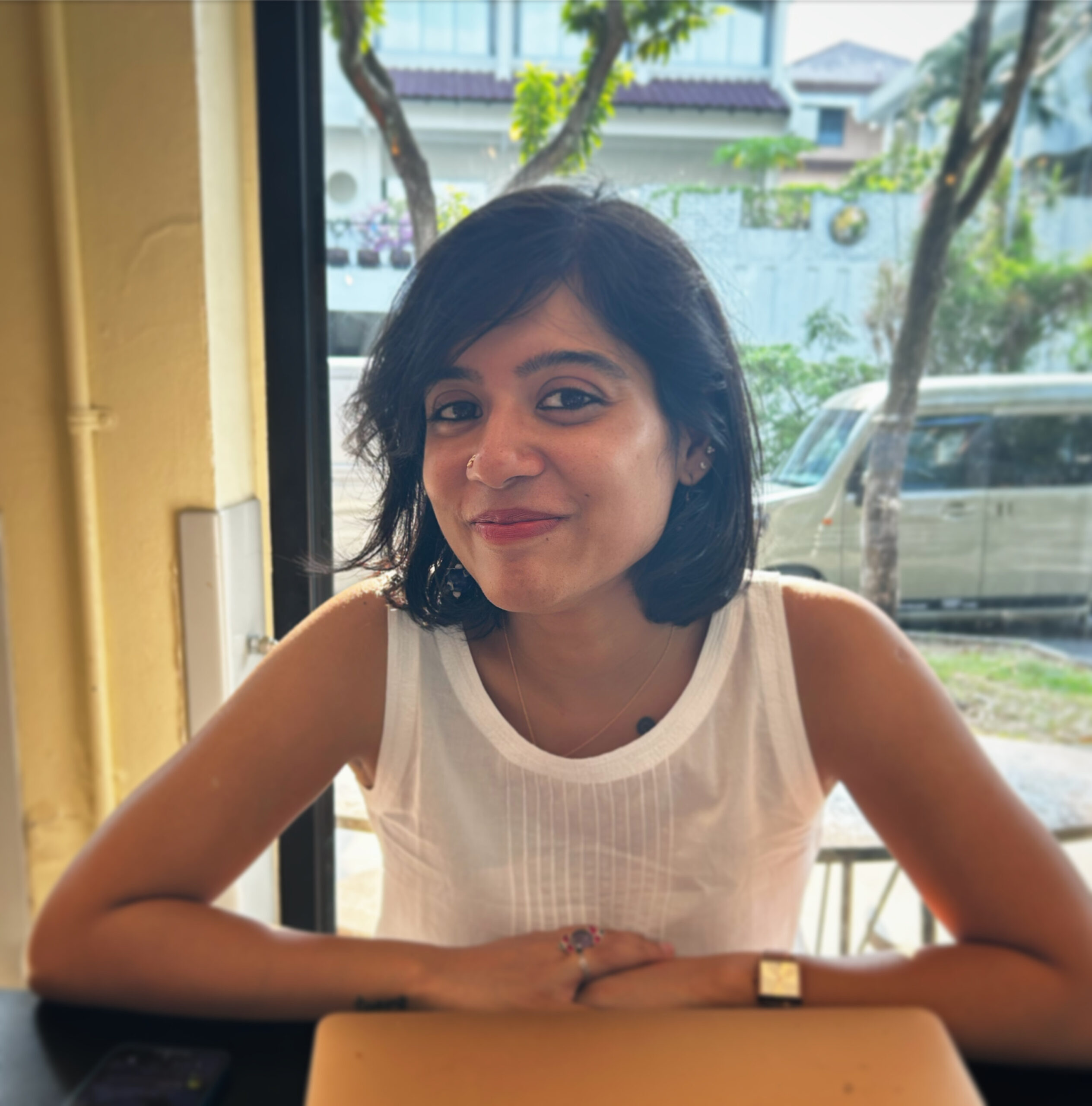
Assistant Professor Sneha Annavarapu is an urban sociologist. Her wide-ranging research interests centre around governance, class relations, and gender in contemporary Indian cities. She has published articles in academic journals such as Social Problems, Social Change, Journal of Historical Sociology, and Journal of Consumer Culture and has also written for media outlets like Public Books and Economic and Political Weekly. Asst Prof Annavarapu is a regular host on the New Books Network podcast and co-founder of ‘Ethnographic Marginalia’. For more information, please visit https://www.snehanna.com/
Research SpecialisationsAs a qualitative sociologist by training, my aspirations and inspirations as a researcher are motivated by a commitment to critically thinking through the seemingly banal “everyday”. I use an ethnographic sensibility to explore how new technologies of social control in rapidly urbanising India are enmeshed in gender and class politics.
I am currently working on my book project which is an ethnographic intersection of state experiments with traffic authority and the tactile, bumpy, painful, and pleasurable experiences of driving in an Indian metropolis. Drawing on multi-sited ethnographic fieldwork conducted over four years in the southern Indian city of Hyderabad, my book reveals how underneath overdetermined tropes of chaos and indiscipline on Indian roads lurks a layered story about everyday politics in the country – of a postcolonial state that is trying to elicit obedience to its authority; of humour and mockery of state authority; of bribery and brokerage; of swanky expressways and pesky potholes; of the lives and labours of working-class drivers; of the pleasures of mobility; and of the seductions and suspicions of developmental idealism. The so-called chaotic road, the book argues, is the literal and metaphorical terrain on which visions of modernity and mobility wrestle with the cacophony of everyday democratic practice.
In my research, I have examined the impact of the COVID-19 pandemic on the lives of migrant cabdrivers; the politics of women’s safety in taxicabs in Hyderabad; the historical evolution of middle-class attitudes towards public kissing in Mumbai; how ideologies of good citizenship are embodied in gendered consumption practices at wellness centres in Chennai; the intersectional exclusions of in-vitro fertilisation technologies; and the politics of honour killings in India. This work has appeared in the Social Change, Social Problems, Journal of Historical Sociology, the Journal of Consumer Culture, the Journal of Developing Societies, and Economic and Political Weekly. In my public writing, I have written about ethnographic research as a gendered and sexualised practice; how women drivers in Hyderabad “have fun” in the highly masculinised profession of autorickshaw driving; how upper-class women travel in taxicabs in the context of panics around women’s safety in cabs; the possibilities and pleasures of women using Instagram; and on youth masculinities in small towns in neoliberalising India. Some of this writing can be found on Public Books, Economic and Political Weekly, Agents of Ishq, StandArt, and The Wire. Find my writing here.
I believe in doing the work of making academic writing accessible to a wider public. In that sense, I think of myself as doing the work of intellectual translation. To this end, not only have I published several book reviews but I also am a regular host on the New Books Network podcast. In my tryst with research, doing the work of public writing and intellectual translation has been the most satisfying and rewarding experience.
I am also the co-founder and co-editor of Ethnographic Marginalia, a website that features writing and conversations around ethnographic practice.
For more, visit www. ethnomarginalia.com
- Infrastructure
- Transportation and mobility
- Urban change in South Asia
- Social control
- Gender and urban life
- Ethnographic methods
2023. “Gendering Infrastructure: An Introduction”, co-author to introduction to special issue
Gendering Infrastructure, edited by Yaffa Truelove and Sneha Annavarapu Roadsides (009)
1-82022. “The Weight of Waiting: suspended mobilities and deferred aspirations amongst
cabdrivers in Hyderabad, India” Social Change 52(2) 187-202. (Special Issue: Navigating Hyper Precarity: Im(mobilities) during the Covid pandemic in India).2022. “Risky roads, safe suspicions: gender, class, and cabs in Hyderabad, India” Social
Problems 69 (3) 761-780.2021. “Social Life of the State: Relational Ethnography and Political Sociology”, co-author of
introduction to a special issue “Social Life of the State”, edited by Zachary Levenson and
Sneha Annavarapu Qualitative Sociology 44 (3) 337-3482021. “Brokers and Bribes in India”. Contexts. 20(1) 41-46. [Special Issue: Ethnographies of the
Global South]2018. “Where do all the lovers go? The cultural politics of public kissing in Mumbai, India”
Journal of Historical Sociology 31(4) 405-419.2018. “Consuming Wellness, Producing Difference: the case of a wellness center in India”
Journal of Consumer Culture 18(3) 414-432.
- Modern Social Thought

